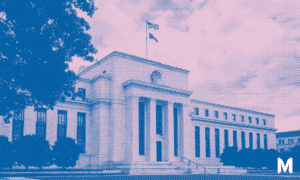Coinbase, one of the largest cryptocurrency exchanges, is coming under scrutiny again.
Just last week the former Product Manager at Coinbase and two other employees were charged with wire fraud and insider trading. On top of this, the exchange faced a perfect storm while trying to weather the “crypto winter”.
Coinbase halted its affiliate program for influencers, laid off over 1,000 employees and came under pressure as its stock price plunged in recent months. The bad news doesn’t end here.
The U.S. Securities and Exchange Commission (SEC) is currently investigating Coinbase.
Bitcoin proponents like Michael Saylor have long pointed out that bitcoin is a commodity while all other cryptocurrencies, including Ethereum, are securities. Pre-mines where investors and insiders can purchase tokens during an Initial Coin Offering (ICO) can help raise money for developers and marketing.
But a strong argument can be made that these ICOs resemble how technology startups raise money from angel investors and venture capitalists.
Bitcoin didn’t have a pre-mine, no money was raised for its development and there is no organization, company or foundation behind it.
The creator of Bitcoin is unknown, which is one of the reasons why most regulators seem to agree that bitcoin should be treated as a commodity and not a security.
However, after the recent collapse of Terra and the bankruptcies at Celsius, Voyager Digital and Three Arrows Capital, regulators are taking a closer look at cryptocurrencies and we should expect a lot more regulation.
The SEC’s probe into Coinbase comes at no surprise. Bitcoin evangelists like Max Kaiser have criticized Coinbase and other cryptocurrency exchanges and called them “casinos”.
SEC chair Gary Gensler has made statements in the past that Coinbase should register as a national securities exchange.
The current probe into Coinbase seems to be the next step in gaining clarity on this front.




